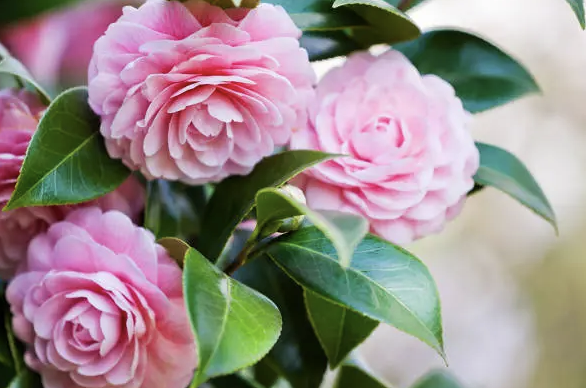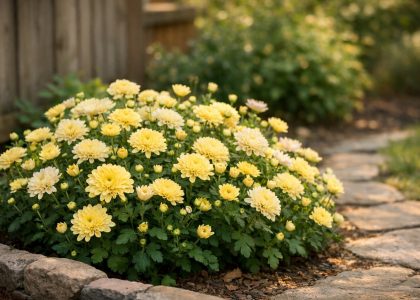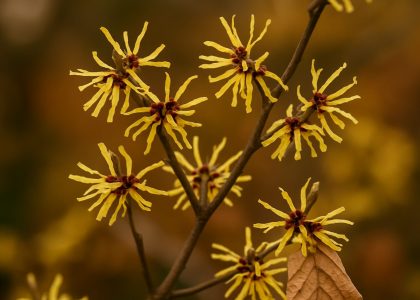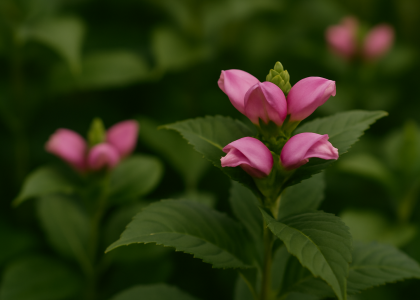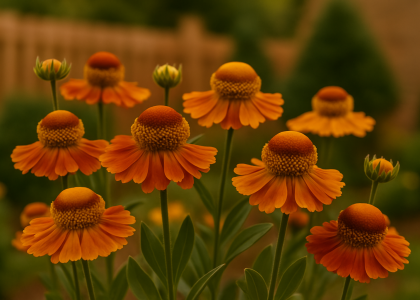A gardener’s guide to growing, loving, and living with camellias
A Quiet Bloom That Changed Me
I still remember the first time my camellia bloomed.
It was mid-January. The frost had painted the garden silver, and everything looked asleep—except one flower. A single pink camellia, shy but radiant, had opened overnight.
That morning, I stood in the cold, coffee steaming in my hands, staring at this quiet act of resilience. It didn’t shout. It didn’t need to. It just bloomed—beautifully, quietly, in its own time.
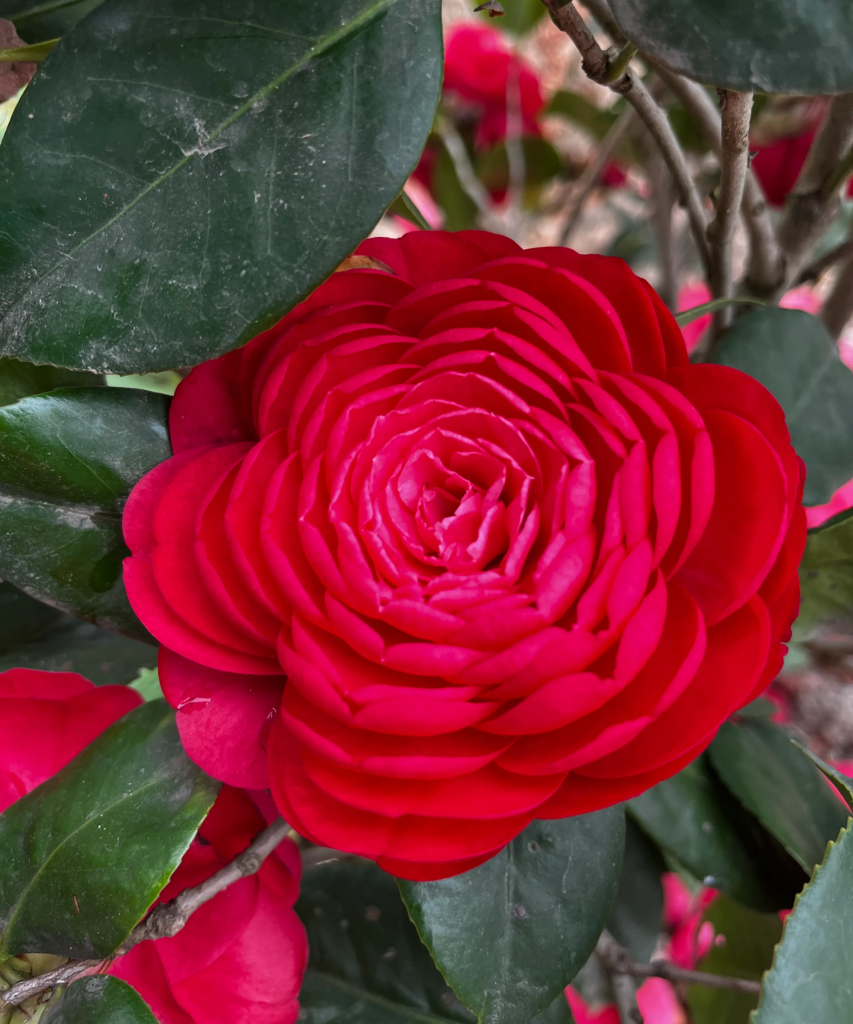
The Language of Camellias: What They Mean
Camellias have long been cherished across cultures as symbols of elegance and emotional grace.
| Color | Meaning |
|---|---|
| Red | Deep love, admiration |
| White | Longing, memory, purity |
| Pink | Affection, romantic interest |
| Yellow (rare) | Yellow (rare)Joy, renewal |
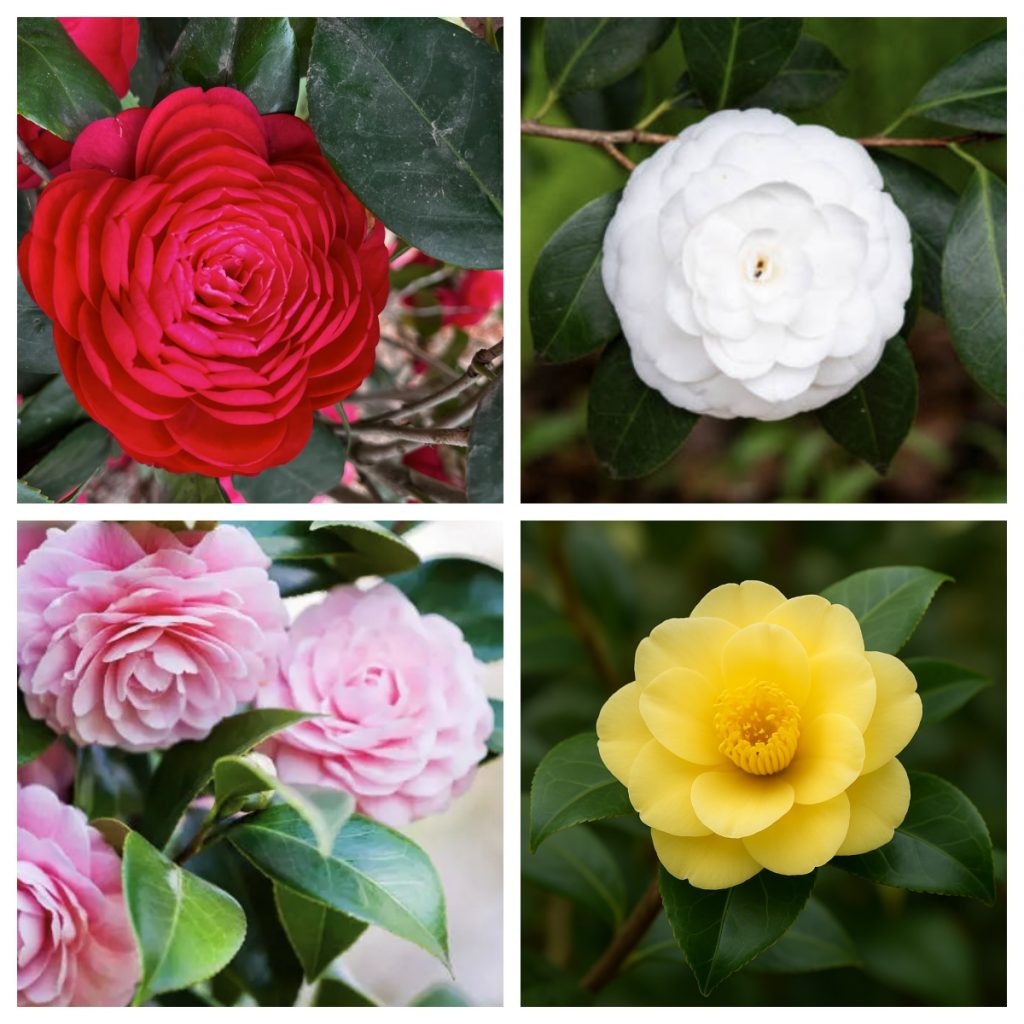
Practical Planting Guide for Beginners & Busy Gardeners
Camellias thrive with just a bit of intention and patience. Here’s how to set them up for success.
Light Needs
- Ideal: Morning sun + afternoon shade
- Can tolerate full sun in cool climates (Camellia sasanqua is more sun-tolerant)
Soil & Potting
- Slightly acidic (pH 5.5–6.5)
- Mix: 40% peat moss + 30% perlite + 30% compost or pine bark
- Avoid clay or alkaline soil (causes yellowing)
Watering
- Keep soil moist, not soggy
- Mulch with pine bark to retain moisture and protect shallow roots
Climate Tips
- Hardy to USDA zones 7–10
- In colder zones, grow in containers and move indoors or insulate with frost cloth
Fertilizing
- Use acid-loving plant fertilizer (e.g., azalea or rhododendron formula)
- Feed twice per year: early spring and mid-summer
- Avoid high-nitrogen fertilizer—it encourages foliage over flowers
Propagation Made Simple: Cuttings You’ll Love to Share
Want to gift a friend a camellia from your garden?
- In late summer to early fall, take a 4–6 inch semi-hardwood cutting.
- Strip lower leaves, dip in rooting hormone
- Plant in moist mix of peat + perlite, and cover with a plastic dome or bag
- Keep warm (70–75°F / 21–24°C), bright, and humid
- After 6–8 weeks, gently tug—if you feel resistance, roots have formed!
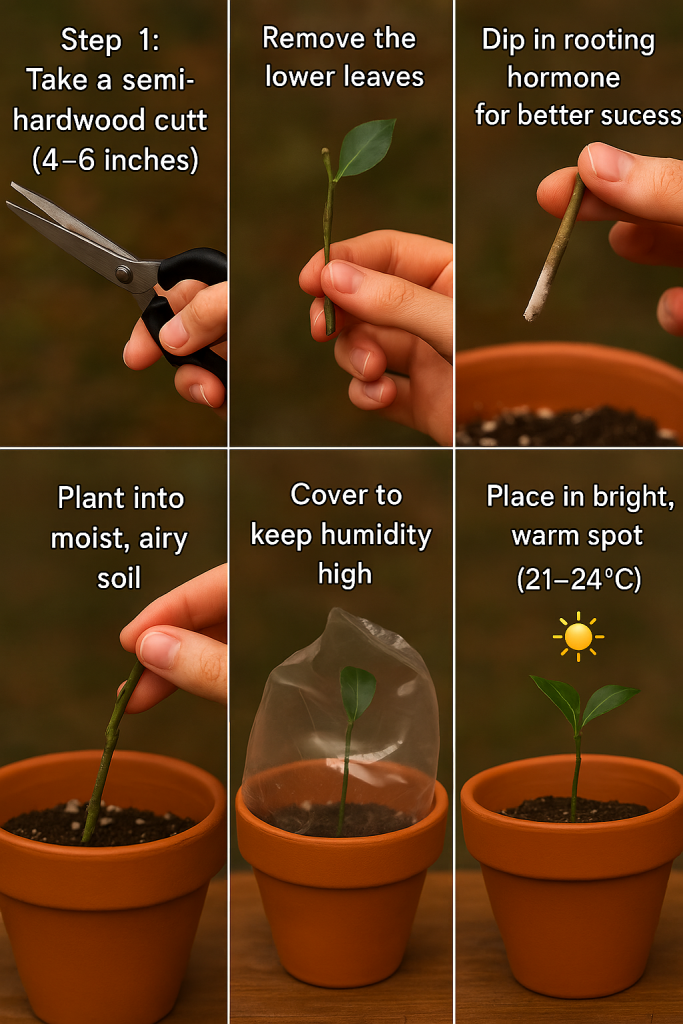
Protecting Your Bloomers: Common Problems & Easy Fixes
Even the most graceful flowers face challenges. Here’s how to keep your camellias healthy:
| Issue | Symptom | Fix |
| Yellow leaves | Chlorosis from alkaline soil | Apply sulfur or iron chelate; adjust pH |
| Buds drop before blooming | Inconsistent watering or root rot | Keep soil evenly moist; improve drainage |
| Tea scale / aphids / spider mites | Leaf spots, stickiness, webbing | Neem oil or insecticidal soap spray |
| Petal blight | Flowers turn brown quickly | Remove affected blooms; improve air flow |
Varieties You’ll Fall in Love With
| Name | Bloom Time | Best For |
| Camellia japonica | Late winter–spring | Large blooms, shade gardens |
| Camellia sasanqua | Fall–early winter | Fragrant, more sun-tolerant |
| Camellia reticulata | Spring | Showy, dramatic blooms |
| Camellia sinensis | Fall | Tea-making + small garden spaces |
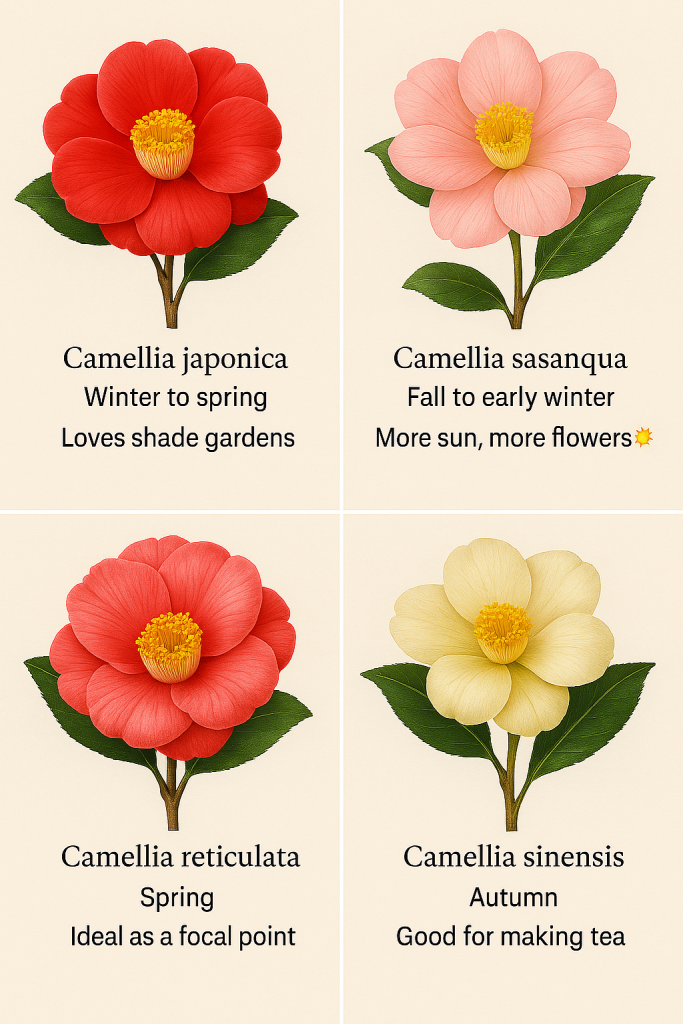
More Than a Pretty Face: Uses You May Not Know
Tea & Edibles
- Use Camellia sinensis leaves for brewing green or black tea
- Dried Camellia japonica petals are edible and can be steeped for gentle floral tea
- Petals also work beautifully as garnish for desserts or pressed into syrups
Skin & Hair Care
- Camellia seed oil (from C. oleifera) is prized in Japanese and Korean skincare
- Rich in antioxidants and oleic acid: perfect for dry or mature skin
Home Décor & Wellness
- Use fresh blooms in floating bowls
- Press petals into journals or DIY greeting cards
- Scatter petals in a warm bath with essential oils
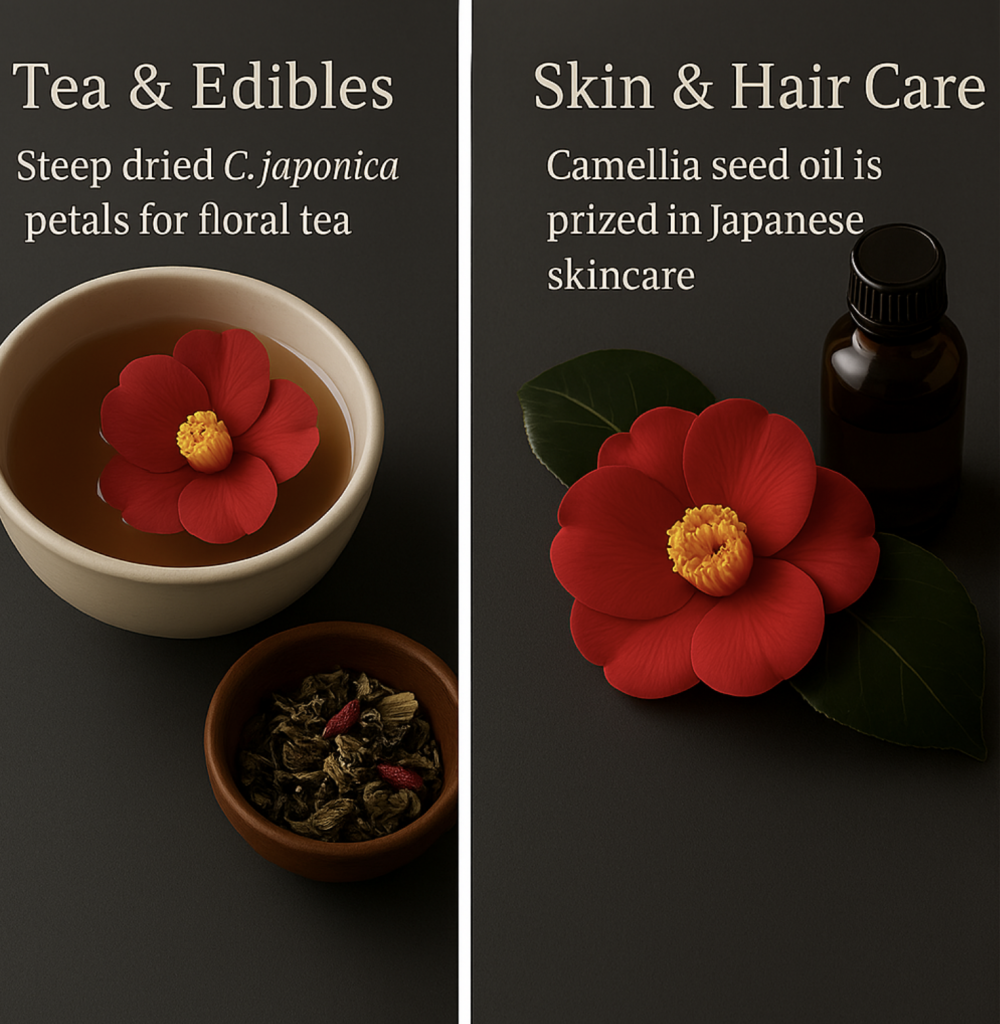
Create a Garden That Feels Like a Poem
Camellias aren’t just plants. They’re a lifestyle.
- Plant a hedge of sasanquas along your fence line for a burst of color in fall
- Pot a japonica near your front door—watch guests linger
- Mix with ferns, hostas, hellebores, and mossy stone paths for a woodland dreamscape
Whether your garden is big or small, camellias can turn it into a place of peace.
Final Thoughts
If you’ve ever doubted the magic of growing your own flowers, start with a camellia.
She’ll teach you patience, reward you with elegance, and remind you—quietly—that some things are worth waiting for.

